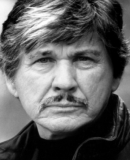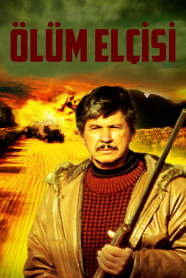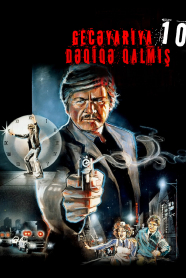
Charles Bronson
Charles Bronson
Actor
Biography
Charles Bronson (born Charles Dennis Buchinsky; Lithuanian: Karolis Dionyzas Bučinskis; November 3, 1921 – August 30, 2003) was an American actor. He was often cast in the role of a police officer, gunfighter, or vigilante in revenge-oriented plot lines, had long-term collaborations with film directors Michael Winner and J. Lee Thompson, and appeared in fifteen films with his second wife Jill Ireland.After the end of World War II, Bronson worked at many odd jobs until joining a theatrical group in Philadelphia, Pennsylvania. He later shared an apartment in New York City with Jack Klugman while both were aspiring to play on the stage. In 1950, he married and moved to Hollywood, where he enrolled in acting classes and began to find small roles.Bronson's first film role — an uncredited one — was as a sailor in You're in the Navy Now in 1951, directed by Henry Hathaway. Other early screen appearances were in The Mob (1951); The People Against O'Hara (1951), directed by John Sturges; Bloodhounds of Broadway (1952); Battle Zone (1952); Pat and Mike (1952), as a boxer and mob enforcer; Diplomatic Courier (1952), another for Hathaway; My Six Convicts (1952); The Marrying Kind (1952); and Red Skies of Montana (1952).In 1952, Bronson boxed in a ring with Roy Rogers in Rogers' show Knockout. He appeared on an episode of The Red Skelton Show as a boxer in a skit with Skelton playing "Cauliflower McPugg". He appeared with fellow guest star Lee Marvin in an episode of Biff Baker, U.S.A., an espionage series on CBS starring Alan Hale, Jr.He had small roles in Miss Sadie Thompson (1953); House of Wax (1953), directed by Andre DeToth; The Clown (1953); Torpedo Alley (1953); and Riding Shotgun, starring Randolph Scott, directed by DeToth again.Bronson had a notable support part as an Indian in Apache (1954) for director Robert Aldrich who then used him again in Vera Cruz (1954). Bronson then made a strong impact as the main villain in the Alan Ladd western Drum Beat as a murderous Modoc warrior, Captain Jack (based on a real person), who relishes wearing the tunics of soldiers he has killed.He had roles in Tennessee Champ (1954) for MGM, and Crime Wave (1954) directed by de Toth.In 1954, during the House Un-American Activities Committee (HUAC) proceedings, he changed his surname from Buchinsky to Bronson at the suggestion of his agent, who feared that an Eastern European surname might damage his career.
For more information press the link below:
https://en.wikipedia.org/wiki/Charles_Bronson
For more information press the link below:
https://en.wikipedia.org/wiki/Charles_Bronson
Filmography
Main Characters
Rəy bildirmək üçün Giriş et və ya Qeydiyyatdan keç

